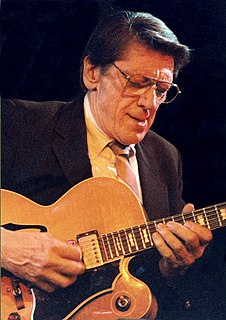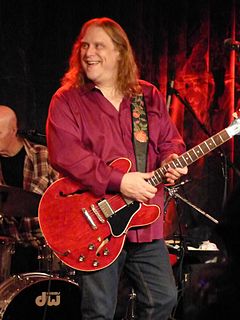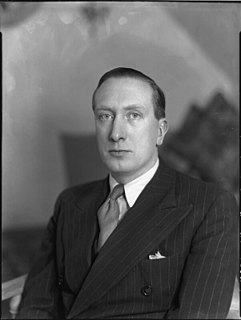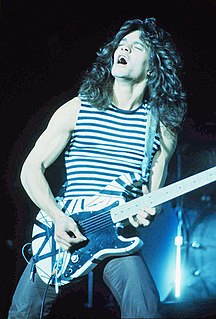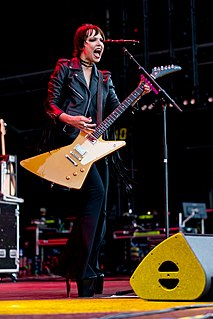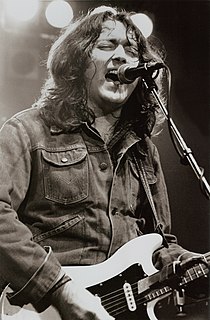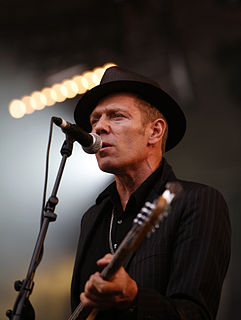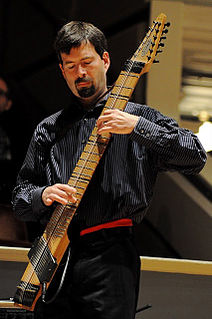A Quote by Lee Ranaldo
When we first started, in the early Eighties, we had some crappy guitars - Japanese knockoffs that wouldn't hold standard tuning. Later, we'd shove drumsticks or screwdrivers under strings to scheme new noises, sure. But initially, open tuning was a technique used to make our cheap guitars sound better. It wasn't academic or conceptual.
Related Quotes
The result was the same as tuning down the strings by a semitone and using a capo at the first fret. With less tension in the strings, the sound was more mellow and softer; it also allowed me to cover a larger span of the fingerboard. I used this for quite a few years, but eventually I went back to the standard fingerboard.
Even on guitars I've had misfortunes. I never used to clip the strings on my guitar and then one day I accidentally poked my right eye with the E-string. My eye just wouldn't stop tearing up and I could barely keep it open. The doctor said I didn't do any major damage, but I had to wear a patch for a little while. I still have a tiny red mark on my eyeball from it; I'm still not sure it's the same.
Never having thought of writing for the guitar, I asked Julian Bream for a chart which would explain what the guitar could do. I managed to write some rather pretty pieces for him, except that the first six notes of the first piece all need to be played on open strings. So when he begins to play the audience will probably think he's tuning the bloody thing up!
The first instrument I had was made in the late '70s. Back then they had basically one tuning. I shifted slightly away from that tuning right away (to what is now called the Baritone Melody Tuning), because I wanted more string overlap between the two sides.The instrument I currently play has an active pickup system, Fret Rails, a fully adjustible bridge, adjustible truss, Flaps adjustible nut. Even with all of these advances, I'm always struck when I play the older instrument how good they were even then. Emmett's always been great at implementing his ideas.

